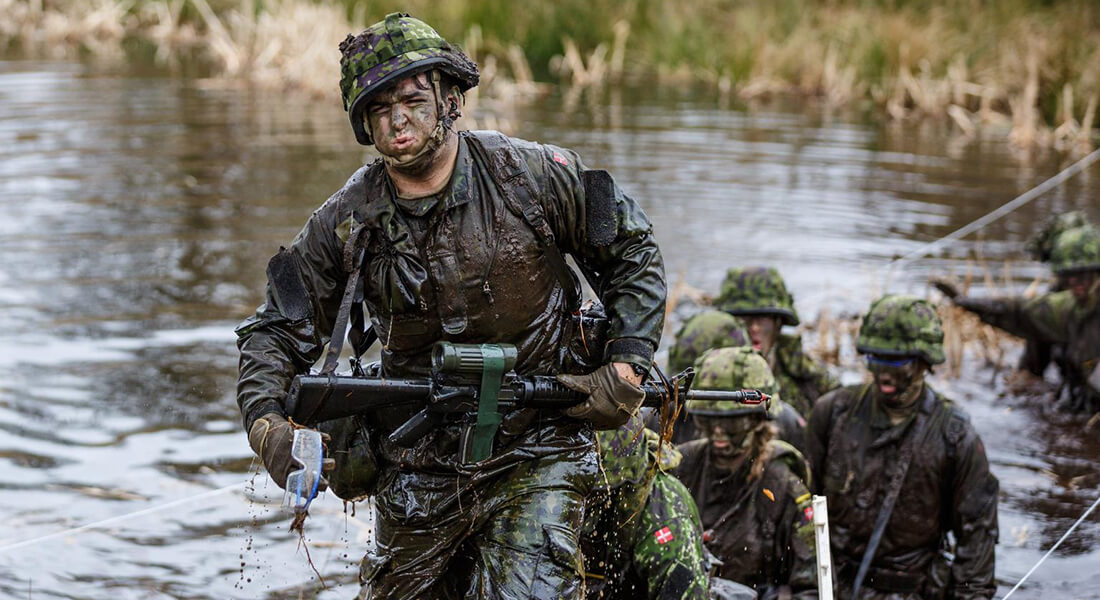PhD defence: Effect of training frequency as several shorter training sessions compared to less frequent but longer training sessions - in a military population

In a military population
Thor Anders Kilen
PhD thesis
Physical work capacity is important in several occupations and can even be a determining factor for example for first responders or military personnel. However, in a busy daily schedule, time to develop and maintain adequate strength and endurance is often limited. Therefore, development of efficient training regimes where the invested time is minimal and outcome is maximal is of high importance. One possibly efficient strategy is to implement short duration training sessions (≤15 min) of both strength and endurance that can be completed in breaks during the day.
The main aim of the present thesis was to investigate the difference in training outcome from micro-training (15 min sessions) compared to a volume and intensity matched classical military physical training regime (60 min sessions) in Danish Armed Forces conscripts during a basic military training program. A secondary aim was to explore individual adaptations to training related to initial training status in a large group. More precisely the following hypotheses were investigated:
- Four 15 min strength training sessions per week yield more pronounced functional and muscular adaptations as compared to one 60 min strength training session per week when added to basic military training.
- Four 15 min endurance training sessions per week yield more pronounced functional and muscular adaptations as compared to one 60 min endurance training session per week when added to basic military training.
- Functional and muscular adaptations are dependent on individual initial physical fitness status. Specifically, that the 1/3 of the population with the lowest initial physical capacity within a given variable will achieve the highest degree of adaptions while the 1/3 of the population with the highest initial physical capacity within a given variable will achieve the lowest degree of adaptation.
2019, 127 pages.
Time
26 April 2019, 14:00
Place
Building 118. Svanemøllen Kaserne, Ryvangs Allé 1-3, DK-2100 Copenhagen. Signs will lead to the auditorium.
Registration
Registration is mandatory, since Svanemøllen Kaserne has to be informed of names of all guests at the PhD defence.
Opponents
Associate professor Faidon Magkos (chair), Department of Nutrition, Exercise and Sports, University of Copenhagen, Denmark.
Reader Sam Blacker, Department of Sport & Exercise Sciences, University of Chichester, United Kingdom.
Professor Heikki Kyröläinen, Faculty of Sport and Health Sciences, University of Jyväskylä, Finland.
Supervisor
Associate professor Nikolai Baastrup Nordsborg, Department of Nutrition, Exercise and Sports, University of Copenhagen, Denmark.
